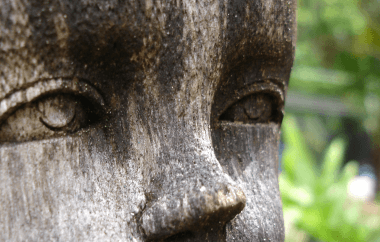While there’s little in GTD that’s explicitly cultish (despite the Wired article’s title, which calls GTD Allen’s “cult of hyperefficiency” — a representation the article itself goes to pains to dispel), the connection between Allen and John-Roger causes some people a great deal of concern. For them, Allen’s sullied past and spiritual leanings are marks against him. Not to me. In fact, reading about Allen’s difficulties coming to terms with his life and, ultimately, himself makes him seem more worth listening to, not less. I say this as a man without a spiritual bone in my body, someone with no great respect for those who offer salvation or Truth to the misguided and confused. In short, I say this as someone who is not impressed with Allen as a believer, but is still impressed with his work and the role he’s taken as a leader offering tools to empower others to deal with their lives. In my first post here at lifehack.org, I wrote that “Leaders empower those around them” and this is the quality I admire in Allen. Knowing that he is, was, and will continue to be “only human” doesn’t diminish his leadership qualities; rather, I believe it enhances them. Too many would-be leaders assume a mantle of superiority, distancing themselves from their “mere” humanity with all the faults and weaknesses that implies. They hide their weaknesses, pretending to be above the trivialities of day-to-day life, and presenting a front of super-human strength and competence. These are the people who wear hairpieces and cap their teeth to avoid the impression of bodily imperfection and scoff at those of us who wear our hearts on our sleeves and worry over-much about the right thing to do. There’s nothing empowering about this model of leadership, though — it’s leadership through fear and intimidation, through appeal to low self-esteem and insecurity, and it falls apart at the first sign of the so-called leader’s everyday humanity. Allen’s leadership is premised on something different; in interviews he comes across as humble and approachable, and in these profiles as eminently human. He has achieved the success he has attained not only in spite of his earlier failures but because of them — the failures are part and parcel of his success. Knowing his story makes his advice and his work more real to me somehow — it’s the work of a man and not a god. It creates a leadership that is not bestowed from Heaven but the outcome of worldly living. It comes, that is, from a life much like mine — maybe not in the particulars (as far as I know, I’ve never been addicted to drugs or spent time in a psychiatric institution) but in the overall quality. This kind of leadership is far more compelling to me than the model of leadership by brute strength. It is the kind of leadership practiced by someone like Mahatma Gandhi, who led the Indian people to independence from the British not by hiding his faults but by emphasizing them, by displaying them for the world to see. Gandhi understood well the importance of human frailty and built his strategy of nonviolent resistance around it. Knowing that his peaceful protests would be met by violence, Gandhi embraced the fragility of the human body — knowing that the brutality that colonial forces would inflict against unresisting protesters would hang heavy on the consciences of both the present attackers and the rest of the world witnessing it via the media. Throughout his career, Gandhi demonstrated the frailness of his own body and the tenuousness of life itself by embarking on hunger strikes, inspiring millions with his own humanity. Or, to take an example from the opposite end of the moral spectrum, consider Bill Clinton who, regardless of what you thought of his politics or his morality, could make believers in a few moments of personal contact. Hunter S. Thompson, the drug-addled iconoclast and inventor-advocate of Gonzo reporting, a man who despised the politics of appeasement the Democrats arrived at over the span of the Reagan years almost as much as he despised the institution of organized politics altogether, still found himself admiring Clinton when he covered his campaign in 1992. Though he never learned to like Clinton’s centrist politics, he was compelled by Clinton’s very presence — not because of his strength but because of his weaknesses: the gusto with which he wolfed down his food, the womanizing and philandering that Clinton barely concealed, the squareness of his amateur sax-playing, the raw “humanness” of the man. America agreed, apparently; Clinton’s victory in New York clinching the Democratic nomination came hard on the heels of the revelation of Clinton’s affair with Gennifer Flowers. In contrast, George H.W. Bush (and later Bob Dole) was all too stiff and formal to be real. The mark of human weakness is at the center of Phillip Roth’s novel The Human Stain, a meditation on human physical and, more importantly, moral frailty set against the backdrop of the Lewinsky Affair. For Roth, it is the “stain” of moral confusion, physical degradation, sexual and emotional need, and ultimately failure in every and any arena of life that marks us as purely and utterly human. And it is the reality of temptation, of moral misstep, of wrong turns and tortuous recovery that makes for true leadership, for leaders that lead by example and by sharing their unreserved humanity. That is the kind of leadership I see in Allen’s story, and it is the kind of leadership that a mere human like myself can embrace.
